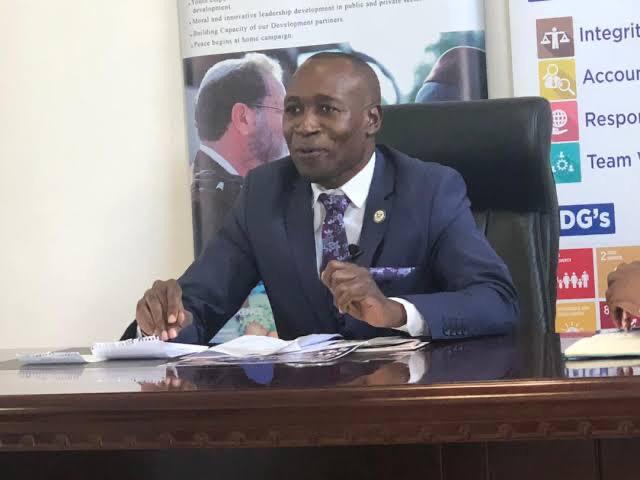
KAMPALA – Uganda needs to sustainably strengthen it’s much sought-after “Buy Uganda, Build Uganda” (BUBU) initiative for the country to successfully ban the importation and use of second-hand clothes and items, Global Peace Ambassador, Kambula Milton has said.
The Ambassador made the call while appearing before a weekly socio-economic talk show on Star TV on Saturday morning, a day after President Museveni banned the importation of used clothing into the country, saying it stifles the development of local textile industries and that the clothes belonged to dead westerners.
Uganda has traditionally imported large quantities of used clothing, which some consumers prefer because it is low-cost.
But local manufacturers complain the dumping of second-hand apparel swamps the market, undermining Uganda’s ability to climb the value chain of the cotton and textile industry.
Amb. Kambula said that the president’s intention of banning the importation of second-hand items is valid but not sustainable.
He said the president needs advice before putting the 45 million people into the drought of demand and supply question.
“I believe President Museveni is on track and this is a great idea; no one should be putting on secondhand clothes after 40 years of NRM in power but the question is where is BUBU in all this? If you look, it’s the Chinese company that is doing the purported manufacturing or assembly and storage of these items in industrial parks: it’s all about Chinese accessing our regional market while exporting the largest consignments, but not sharing formulas and models for turning raw materials like cotton into processed and manufactured clothes or magnetite and hematite to make car bodies,” Kambula said.
“In my book ‘Nurturing a competent African Child’ which I started writing 20 years, I go and set to laugh next year, I spelt out that Africa’s liberation struggle will be led by an African who is committed to use the available resources within trhe African communities to transform the economy,” Kambula noted.
Kambula noted that once BUBU is strengthened and fully implemented with government goodwill, it will automatically do away with secondhand clothes, cars, furniture, roofing systems, and electronics among others.
As a way forward, Kambula advised that the first step is to transform the education system and its outcomes.
“This is because it’s what guarantees change and innovation so that we are able to make and manufacture things on our own,” Kambula said.
Amb. Kambula blamed post-independence governments for lacking a clear vision about the future of the country and what the African continent deserves.
Kambula said that, “Even those in opposition lack this kind of wisdom; so, as we blame the government we should not just point fingers but somehow share innovative paths towards having a self-sustaining and inclusive economy.”
Amb. Kambula is challenging Ugandan leaders to focus on nurturing the population well so that in the next 12 years, Uganda registers 25% of the native African Ugandan population becoming billionaires not mere slaves and housemaids or security guards for Chinese, Americans, Arabs, Europeans, etc.
“The mentality of giving incentives to only foreigners needs to be reviewed because what the world is teaching us, is clear, to the extent that during COVID-19, Africa was left to die on its own; with the worst condemnation of not being allowed to make any medicine from the available community raw materials.”
Uganda is a significant producer of cotton but much of it is exported in semi-processed form, with the value of its cotton exports ranging between $26-76 million per year in the decade to 2022, according to Uganda’s central bank.
The East African Community, a regional economic grouping of which Uganda is a member, agreed in 2016 to a complete ban on used clothing imports by 2019, but Rwanda was the only country to enact it.
Museveni said the ban would also extend to electricity meters and electric cables, saying they should be bought from factories in Uganda.





